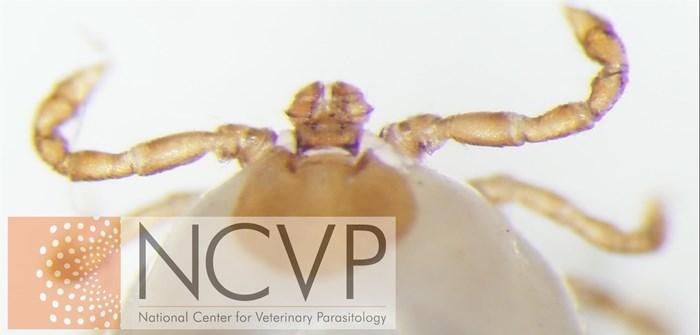Livestock & Poultry
Safeguarding human and animal health, assuring food safety and quality, and promoting Arkansas livestock and poultry industries for the benefit of our citizens
Agriculture / Livestock & Poultry / Longhorned Tick Information and Resources
Longhorned Tick Information and Resources
On Tuesday, June 5, 2018, the United States Department of Agriculture (USDA) National Veterinary Services Laboratory (NVSL) confirmed the presence of the longhorned tick (Haemaphysalis longicornis) in Arkansas. The confirmed longhorned tick came from a dog in Benton County and was submitted through a research project at Oklahoma State University (OSU). NVSL was able to confirm the longhorned tick through a photograph and via molecular typing performed at OSU. Epidemiological investigation and further evaluation of this case is ongoing in cooperation with the USDA Animal and Plant Health Inspection Service (APHIS).
The longhorned tick is an exotic East Asian tick associated with bacterial and viral tickborne diseases of animals and humans in other parts of the world. This tick is considered by USDA to be a serious threat to livestock because heavy tick infestations may cause stunted growth, decreased production, and animal deaths. In other countries, the longhorned tick has been implicated in causing disease in humans, including severe fever with thrombocytopenia syndrome. Like deer-ticks, the nymphs of the longhorned tick are very small (resembling tiny spiders) and can easily go unnoticed on animals and people. This tick is known to infest a wide range of species and has the potential to infect multiple North American wildlife species, humans, dogs, cats, and livestock.
Residents should be aware:
- The longhorned tick doesn't present any new risks or challenges to humans or animals that don't already exist in the state's current tick population.
- It is unknown at this time how this tick got to Arkansas.
- Normal tick prevention and control measures for humans and animals are the best way to avoid exposure.
- Residents can send tick specimens to local Cooperative Extension offices or area health units, both of which have tick kits.
- Residents may also submit ticks to the Oklahoma State University research project here.
- Livestock producers should contact the Arkansas Livestock and Poultry Commission if they notice large numbers of ticks, or strange behavior of livestock herds. Call 501-225-1598.
- If you find an attached tick, remove it immediately.
News and Fact Sheets
- First Detection of Longhorned Tick in Arkansas
- U of A Tick Study Continues to Monitor Presence of Ticks
- Prevention of Tickborne Disease
- Tickborne Diseases in Arkansas
- Recommendations for Veterinarians for the Identification of Longhorned Ticks (451.52 KB)
- Tick Submission Form for Local Health Units, from Arkansas Department of Health (153.35 KB)


